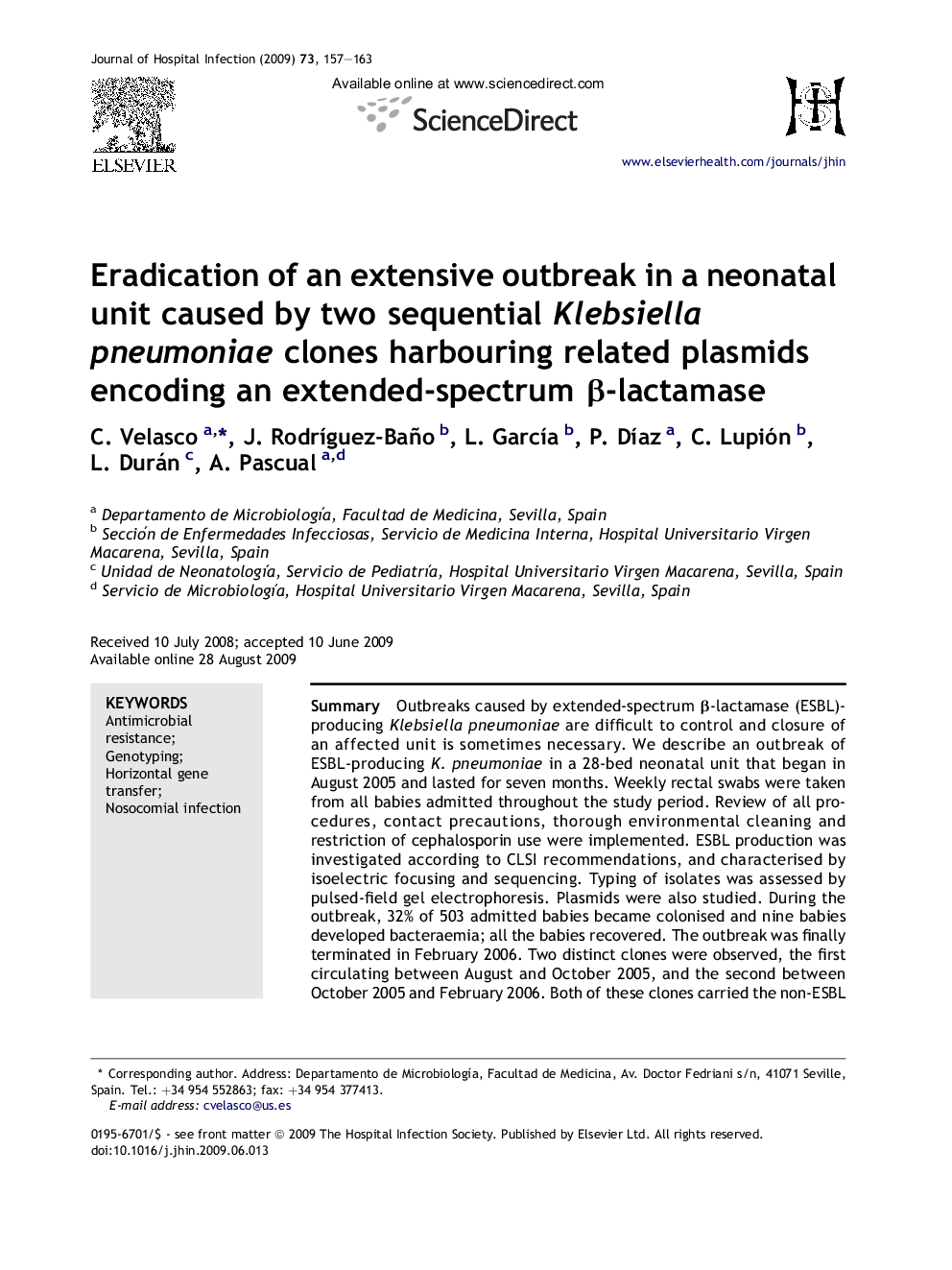| Article ID | Journal | Published Year | Pages | File Type |
|---|---|---|---|---|
| 3373093 | Journal of Hospital Infection | 2009 | 7 Pages |
SummaryOutbreaks caused by extended-spectrum β-lactamase (ESBL)-producing Klebsiella pneumoniae are difficult to control and closure of an affected unit is sometimes necessary. We describe an outbreak of ESBL-producing K. pneumoniae in a 28-bed neonatal unit that began in August 2005 and lasted for seven months. Weekly rectal swabs were taken from all babies admitted throughout the study period. Review of all procedures, contact precautions, thorough environmental cleaning and restriction of cephalosporin use were implemented. ESBL production was investigated according to CLSI recommendations, and characterised by isoelectric focusing and sequencing. Typing of isolates was assessed by pulsed-field gel electrophoresis. Plasmids were also studied. During the outbreak, 32% of 503 admitted babies became colonised and nine babies developed bacteraemia; all the babies recovered. The outbreak was finally terminated in February 2006. Two distinct clones were observed, the first circulating between August and October 2005, and the second between October 2005 and February 2006. Both of these clones carried the non-ESBL SHV-11 and TEM-4 ESBL. Plasmids harbouring TEM-4 from both clones were similar and molecular analysis suggested horizontal dissemination of a single plasmid between the two clones.
